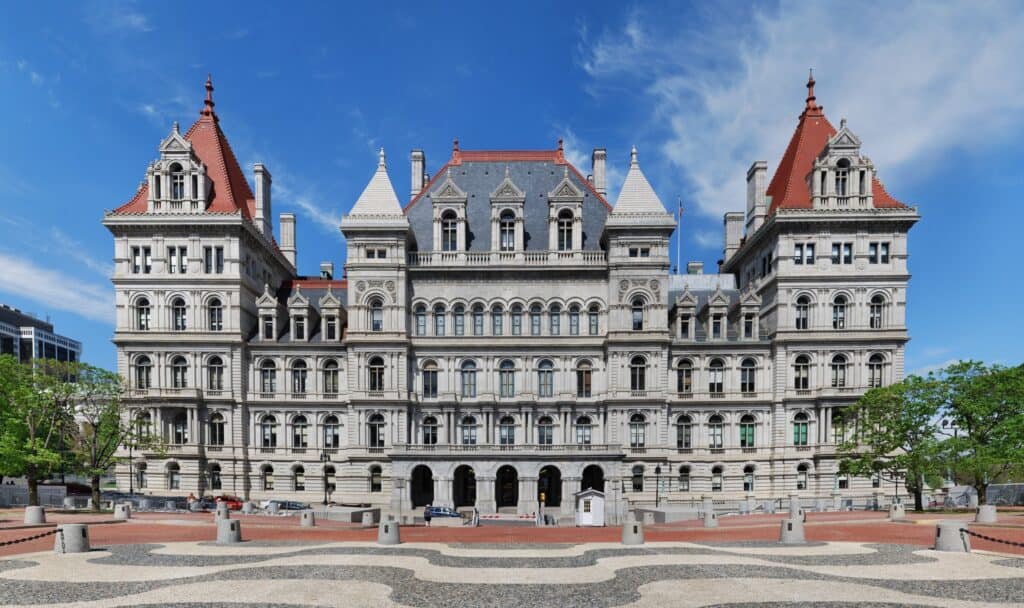
Written Testimony of Paul Wolf, Esq.
President, New York Coalition For Open Government
When Kathleen Hochul became Governor, she promised a “new era of transparency”. In her recent State of the State address, Governor Hochul did not say one word about transparency. In the budget submitted to the legislature there is no new funding for transparency initiatives and no proposed transparency legislation.
There is an open government crisis in New York State that can be addressed through the state budget. The only entity measuring compliance with the Open Meetings Law and the Freedom of Information Law is the New York Coalition For Open Government. Over the past several years, every monitoring report we have done has documented large-scale non-compliance with open government laws.
For our reports, we randomly select 20 local government entities across every region of the state. Here are some examples of our findings:
2022
72% of towns not posting meeting documents online as required by law.
25% of towns not posting meeting minutes or recordings online as required by law.
39% of counties failed to acknowledge a FOIL request within five business days as required by law.
28% of counties never acknowledged our FOIL request.
65% of county board of elections did not respond to emails or telephone calls seeking information.
73% of election boards failed to acknowledge our FOIL request within five business days as required by law. Took an average of 49 days just to receive meeting minutes from county Board of
Elections
Additional funding is needed to address the lack of compliance with the Open Meetings
Law and the Freedom of Information Law.
Increase Funding To The State Committee On Open Government
The NY State Committee on Open Government is a great resource for information but the Committee does not have any enforcement power and limited staff resources. The legislature can show its commitment to open government by providing more resources to the Committee. The state’s lack of commitment to open government is clear when the resources provided to the Committee are compared to other organizations. The Committee has a staff of four state funded employees compared to the organizations listed below.
Inspector General’s Office 92 Employees
Joint Commission on Public Ethics 50 Employees
Authorities Budget Office 11 Employees
Due to the lack of staff, the Committee does not have the ability to do any proactive monitoring of compliance with the law. As the legislature did with JCOPE, the Committee is in need of structural reform, which can be discussed at a different time.
Provide Technology Grants To Local Governments
During the pandemic, live streaming of meetings made it much easier for the public to attend and observe their local government meetings. Across the state, more people watched meetings through live streaming then ever-attended meetings in person. Hybrid meetings (in person and virtual) should continue to be live streamed; with recordings posted online afterwards.
Many rural and smaller communities need assistance with internet and video technology so that they can live stream meetings effectively and efficiently. Software that assists local governments with posting meeting agendas, documents, minutes, and recordings may also be needed. Allocating funds for the training of local municipal officials is critically necessary.
State grants are made available to assist local governments with sewer, water, and economic development projects; but are not obtainable for transparency initiatives.
Enforcement Powers Are Needed
No entity has the power to enforce New York’s Open Meetings Law. The only recourse
a person has in NY is to hire an attorney.
In other states such as Massachusetts, the Attorney General has the authority to investigate and to fine government officials who violate the law. In Connecticut, they have an independent commission with power to address complaints and violations of the law. A restructured Committee on Open Government should be provided increased staffing and enforcement powers.
Hiring an attorney to litigate violations of open government laws is virtually impossible for most people. The legislature has the ability to address the open government crisis that exists in NY State, by providing budget funding and enforcement powers.





